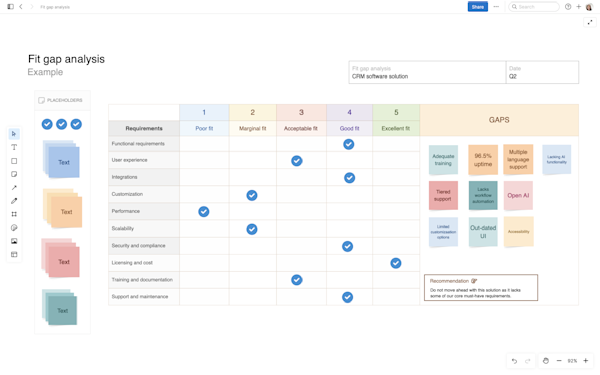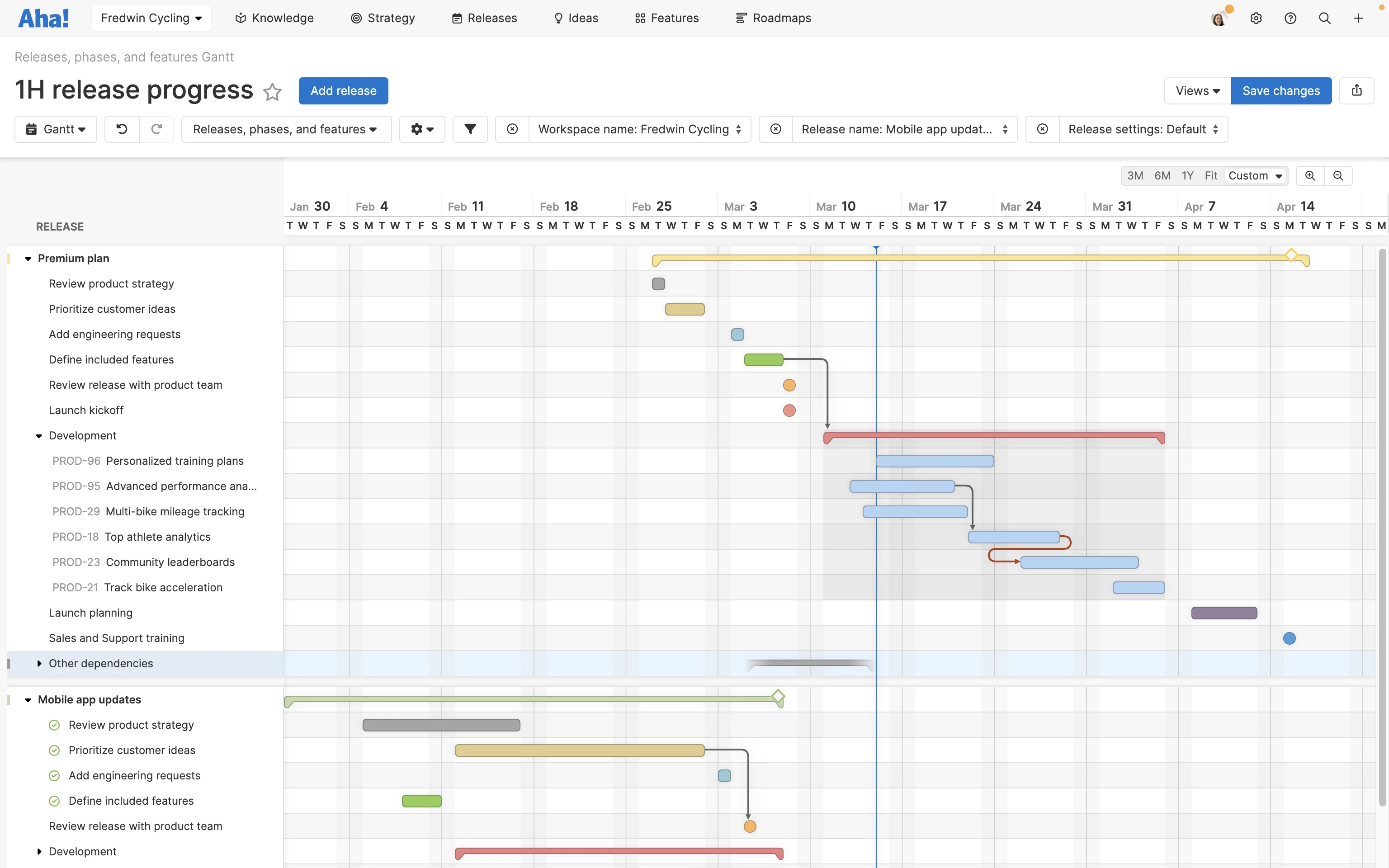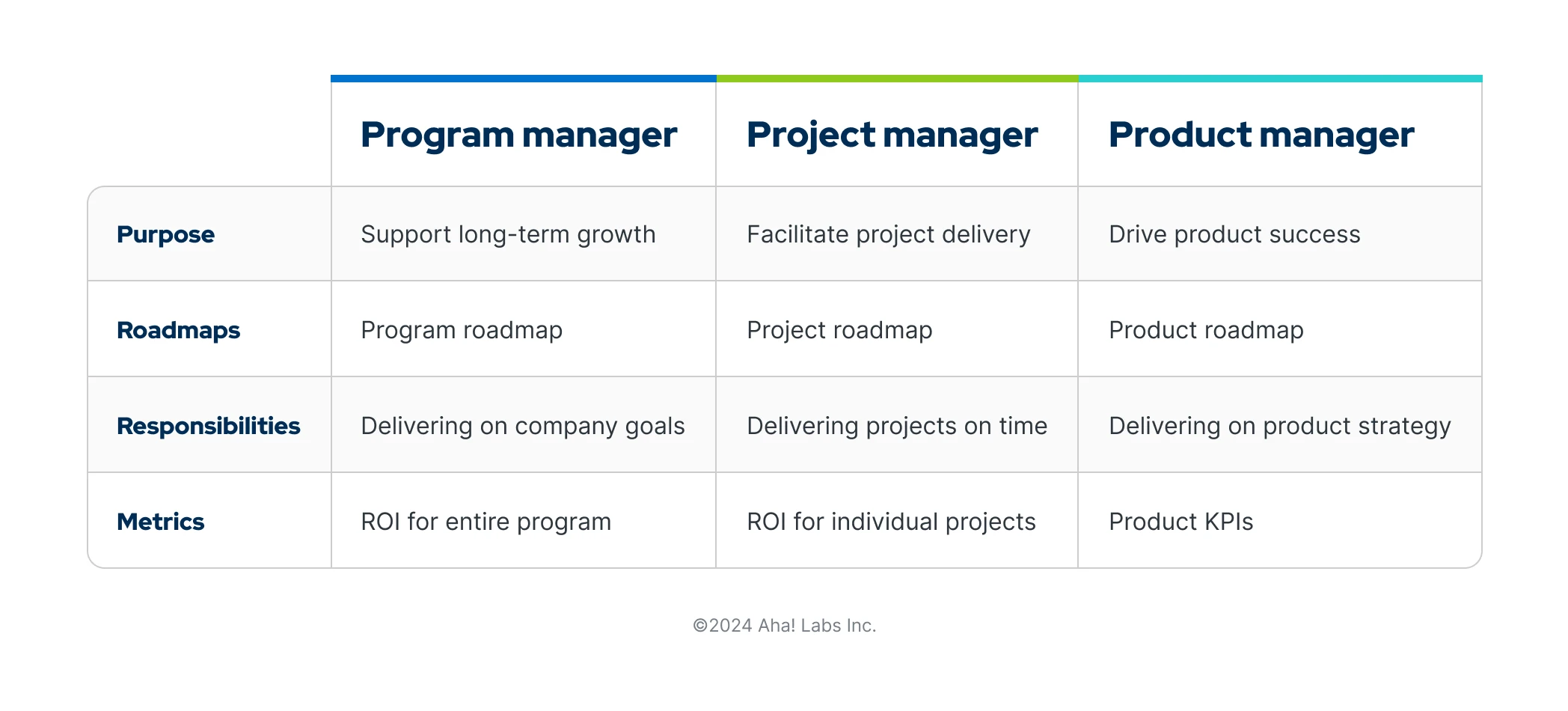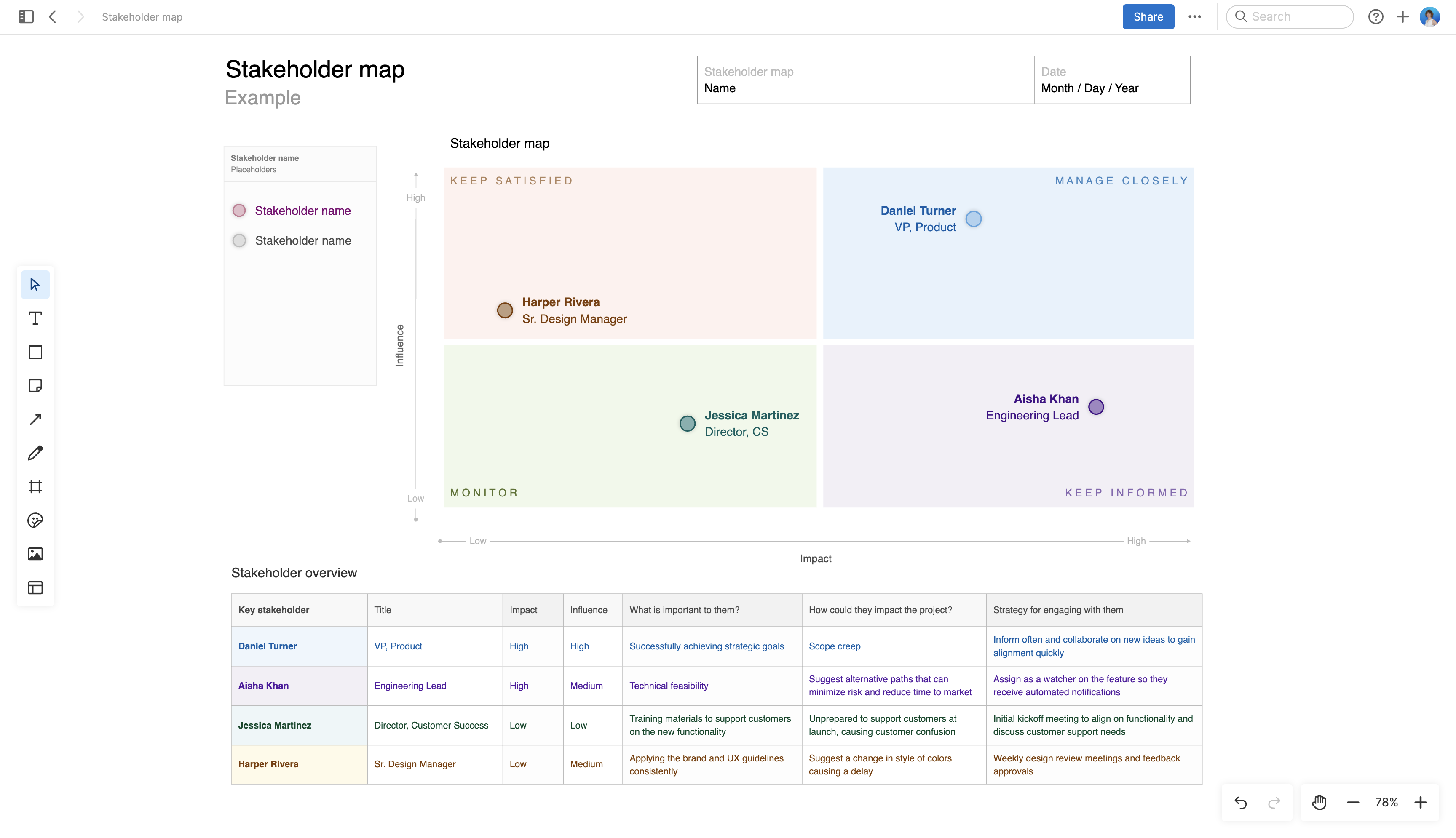What you need to know about being a program manager
Last updated: March 2024
Product managers, project managers, program managers — we have written quite a bit about these roles (and others) within software companies. These days, there is less confusion about the differences between them than there was a decade ago. That said, the distinction can still be murky depending on your organization, its structure, and the products or services you offer.
Typically, program managers spearhead multiple products, projects, or programs — tracking how individual efforts align and help serve company goals. Your responsibilities and purview can vary. For instance, some program managers are responsible for managing budgets and setting project schedules, while others might own an entire product portfolio and look for ways to improve delivery across the organization.
You will find program managers across industries and verticals, generally at large organizations with multiple complex programs and portfolios. In this guide, we will narrow in on the role of a program manager in the context of enterprise software companies.





